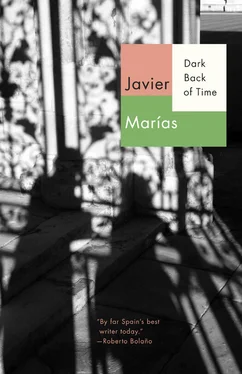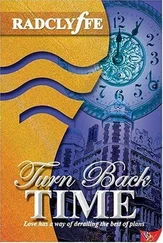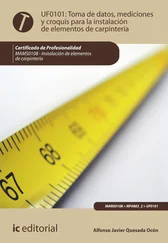Javier Marias
Dark Back of Time
“Marías is one of the best contemporary writers.”
— J. M. Coetzee
“One of the writers who should get the Nobel Prize is Javier Marías.”
— Orhan Pamuk
“A great writer.”
— Salman Rushdie
“It is a rare gift, to be offered a writer who lives in our own time but speaks with the intensity of the past, who comes with the extra richness lent by a foreign history and nonetheless knows our own culture inside out. Yet, strangely, Javier Marías — who is famous in Spain and garlanded with prizes from the rest of Europe — remains almost unknown in America. What are we waiting for?”
— The New York Times Book Review
“Javier Marías is one of the greatest living authors. I cannot think of one single contemporary writer that reaches his level of quality. If I had to name one, it would be García Márquez.”
— Marcel Reich-Ranicki, Das Literarische Quartett
“His prose demonstrates an unusual blend of sophistication and accessibility.”
— The New Yorker
“Javier Marías is such an elegant, witty and persuasive writer that it is tempting simply to quote him at length.”
— The Scotsman
“A supreme stylist.”
— The Times (London)
“Marías uses language like an anatomist uses the scalpel to cut away the layers of the flesh in order to lay bare the innermost secrets of that strangest of species, the human being.”
— W. G. Sebald
“His prose possesses an exquisite, almost uncanny observation, re-creating moments and moods in hypnotic depth.”
— The Telegraph (London)
“Javier Marías is a novelist with style.… His readers enter, through him, a strikingly and disturbingly foreign world.”
— Margaret Drabble
“Marías writes the kind of old-fashioned speculative prose we associate with Proust and Henry James.… But he also deals in violence, historical and personal, and in the movie titles, politicians, and brand names and underwear we connect with quite a different kind of writer.”
— London Review of Books
Javier Marías was born in Madrid in 1951. He has published thirteen novels, two collections of short stories, and several volumes of essays. His work has been translated into forty-two languages, in fifty-two countries, and won a dazzling array of international literary awards, including the prestigious Dublin IMPAC award for A Heart So White . He is also a highly practiced translator into Spanish of English authors, including Joseph Conrad, Robert Louis Stevenson, Sir Thomas Browne, and Laurence Sterne. He has held academic posts in Spain, the United States, and in Britain, as Lecturer in Spanish Literature at Oxford University.
For my mother Lolita,
who knew me well,
in memoriam;
and for my brother Julianín,
who never knew me,
and therefore sine memoira
I believe I’ve still never mistaken fiction for reality, though I have mixed them together more than once, as everyone does, not only novelists or writers but everyone who has recounted anything since the time we know began, and no one in that known time has done anything but tell and tell, or prepare and ponder a tale, or plot one. Anyone can relate an anecdote about something that happened, and the simple fact of saying it already distorts and twists it, language can’t reproduce events and shouldn’t attempt to, and that, I imagine, is why during some trials — the trials in movies, anyway, the ones I know best — the implicated parties are asked to perform a material or physical reconstruction of what happened, repeating the gestures, the movements, the envenomed steps they took, the way they thrust the knife to become the accused; they’re asked to simulate seizing the weapon once again and delivering the blow to someone who, because of it, ceased to be and is no more, or rather to empty air, because it isn’t enough for them to say it, to tell the story impassively and as precisely as possible, it must be seen, and an imitation, a representation or staging of it is required, though now without the knife in hand and without the body — sack of flour, sack of flesh — to drive it into, this time in cool detachment and without racking up another crime or adding another victim to the list, but only as pretense and memory, because what they can never reproduce is the time gone by or lost, nor can they revive the dead who are lost within that time and gone.
This indicates an ultimate mistrust of words, among other reasons because words — even when spoken, even at their crudest — are in and of themselves metaphorical and therefore imprecise, and cannot be imagined without ornament, though it is often involuntary; there is ornament in even the most arid exposition and frequently in interjections and insults as well. All anyone has to do is introduce an “as if” into the story, or not even that, all you need to do is use a simile, comparison or figure of speech (“he was acting like a jerk,” “she flew into a rage”—the kind of colloquial expression that belongs to the language more than to the speaker who chooses it, that’s all it takes) and fiction creeps into the narration of what happened, altering or falsifying it. The time-honored aspiration of any chronicler or survivor — to tell what happened, give an account of what took place, leave a record of events and crimes and exploits — is, in fact, a mere illusion or chimera, or, rather, the phrase and concept themselves are already metaphorical and partake of fiction. “To tell what happened” is inconceivable and futile, or possible only as invention. The idea of testimony is also futile and there has never been a witness who could truly fulfil his duty. Anyway, you always forget far too many moments and hours and days and months and years, and the scar on a thigh that I saw and kissed every day for years during its known and lost time. You forget whole years, and not necessarily the least important ones.
Yet in these pages I’m going to place myself on the side of those who have sometimes claimed to be telling what really happened or pretended to succeed in doing so, I’m going to tell what happened, or was ascertained, or simply known — what happened in my experience or in my fabulation or to my knowledge — or perhaps all of it is only consciousness that never ceases — as a result of the composition and circulation of a novel, a work of fiction. It certainly isn’t anything momentous, nor is it serious yet, or pressing, though it may be entertaining to the curious reader who is willing, on principle, to accompany me; and for me it has the diversion of risk, the risk of narrating something for no reason and in almost no order, without making an outline or trying to be coherent, as if I were telling it in that fickle and unpredictable voice we all know, the voice of time when it has not yet gone by or been lost and perhaps for that reason is not even time; perhaps time is only what has already happened and can be told, or so it appears, and that is why time is the only thing that is ambiguous. That voice we hear is always fictitious, I believe, and perhaps mine will be too, in these pages.
I am not the first writer nor will I be the last whose life has been enriched or poisoned or only changed because of what he imagined or made up and wrote down and published. Unlike those of truly fictional novels, the elements of the story I am now embarking upon are entirely capricious, determined by chance, merely episodic and cumulative — all of them irrelevant by the elementary rule of criticism, none of them requiring any of the others — because in the end no author is guiding them, though I am relating them; they correspond to no blueprint, they are steered by no compass, most of them are external in origin and devoid of intention and therefore have no reason to make any kind of sense or to constitute an argument or plot or answer to some hidden harmony, and no lesson should be extracted from them (nor should any such thing be sought from real novels; above all, the novels themselves should not want it) — not even a story with its beginning and suspense and final silence.
Читать дальше












